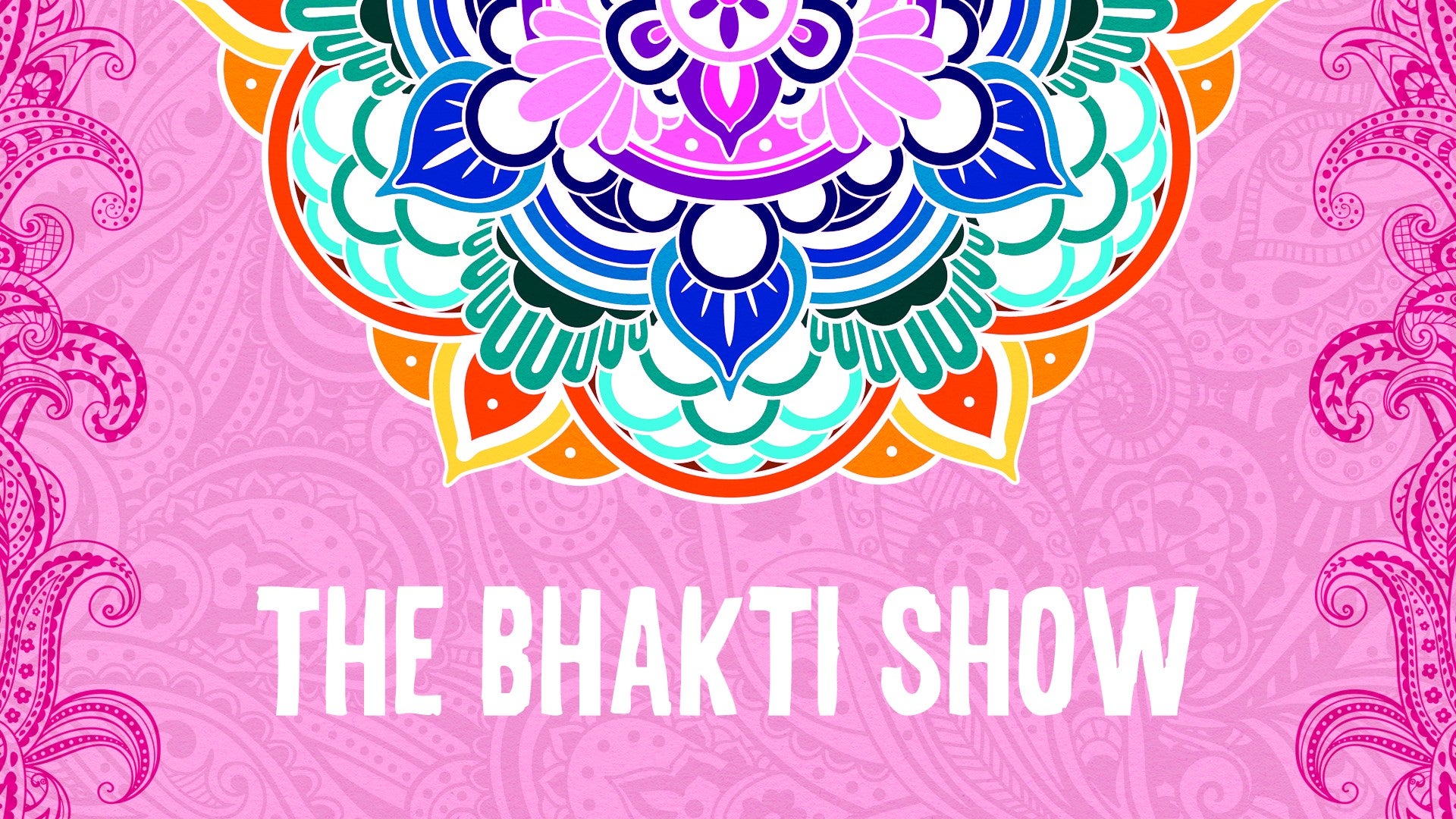Description
About This Video
Transcript
Read Full Transcript
Namaste, dear yogi friend. I am delighted to be sitting here today with Sudharma Mark Kennedy. Thank you so much for being here. Sudharma is a musician, he's a Kirtan artist, he's a shamanic healer and he's actually been awarded a Peace Award from the United Nations for his healing work. So he's currently recording his sixth album which is a beautiful album of Chance to the Divine, a Kirtan album.
So today we're just going to talk a little bit about Kirtan and give you an opportunity to taste this practice that is so central to Bhakti Yoga. So welcome, thank you for being here. So let's begin at the beginning and maybe you can just give us a little description or definition in your own words and flavor of what Kirtan is. Okay, so for me, Kirtan is like another state, like there's waking, dreaming and sleeping and then there's something that's more transcendental and it seems to come through focusing in a certain way and particularly with Kirtan it's an integration of breath, posture, feeling, one-pointedness, call it devotion, like that feeling for the divine, the feeling for love for the universe and in India it's called, another name for it is called Swadhyaya Yoga and personally I would consider it the highest form of yoga because unlike postures or you could say it involves posture but it also involves these other aspects that I just mentioned that you really have to be very strong through chance. You know a lot of people do yoga but they don't always chant, maybe it's too difficult for them, maybe they don't understand it but what I find is the effects are unbelievable, it overrides the mental chatter, it expands the electromagnetic field of the body, it makes your blood integrate better with the endocrine system, your brain and your heart become more aligned, there's nothing but good benefits as far as I can tell.
Probably the best benefit is the sweetness I feel after. So can I just pause you right there because the very basic aspect of it is chanting the names of the divine so I just want to put that in for the audience who may not ever have heard of it and so this is the practice that we're talking about. Many spiritual traditions, many religions, they have prayer, they have singing, they have chanting, different varieties, what I like about kirtan is the archetypal energy that flows through the names of the deities. So personally the name of the deity is less about the meaning of it although there is a meaning. It's more like a series of codes of archetypal program codes to the body, mind, spirit that ignites the kundalini shakti, it ignites this spirit energy that is dormant in the body for the most part and it's a vibrational alignment awakening.
I think anytime we sing we're joining our breath with the universe in some way and the mind is dependent on the breath, the breath is agitated, the mind is agitated. So if you're thinking too much and you're upset and you start chanting, after a while you come into a different state, ultimately that's the result, it can kick in in 20 seconds, it can kick in as you're starting, it could be the fruit of it later. It's kind of like meditation, you meditate in the morning and then in the afternoon you feel incredible. Chanting I experience actually affects the weather. When I start chanting the sun comes out usually or as we know from Bhakti Fest right after there's chanting for four or five days, there's rain everywhere in the desert as if the electromagnetics of the whole collective are affected by, call it not just the vibrations of the chant but call it the emanation, the telepathic intention of the chant, right, it's got a healing effect and I remember my teacher used to say, don't steal the Shakti, in other words don't just sit there while everyone else is chanting and steal the energy, you want to participate, you want to make that joyful noise that literally it purifies everything around you, purifies your skin, your bones, your organs, your friends, it creates a field and I like the fact that the word feel is connected or at least in the semantics it's connected to field because the field of your being is what you're feeling and when you're full field it's kind of like being fulfilled and so I just noticed that even though sometimes it's strenuous it can be difficult to chant, it is a yoga and when you practice it, it gets easier and the more effortless it becomes the more it's a kind of glide ride into the infinite, it resolves your conflicts, it smoothens out the nervous system, it makes the mind quiet and when my mind is quiet I can do just about anything seriously, it's just so much easier to write, so much easier to communicate, to feel things that I want to feel as opposed to being agitated or upset.
When I first came into, it was the Philadelphia ashram of Siddhi Yoga in 1978 and there was an evening program teaching meditation and I'd heard chanting before but I didn't feel connected to it in the way I did that night, I was seduced by the tambura and the harmonium, these Indian instruments were having this trance effect on me and I just slipped into another state that I don't think I've ever been in before, it was like whoa, that's something. So I can't say I chanted a whole lot after that but I was... Was that the first time that you ever officially did Kirtan? That was the first time I participated in a group event like that and then when I flew out to meet Swami Muktananda who was coming to California in 1978 in December, I went to his Oakland ashram and I remember the first night there was two thousand people chanting in the room and I was in the very, very back but right in the middle where I was completely lined up with where he was sitting like 150 yards away and just packed with people on each side and they're all chanting up a storm and I'm just sitting there, this is very interesting and then I realized that Baba was looking at me, he was like saying, come on, chant and I was like... It was like a bolt of lightning hit me and all of a sudden I'm chanting and that awkwardness of say, oh this is a foreign culture, this isn't something I'm familiar with, that all just dissolved and it seemed like the easiest thing in the world and there was something about the group energy sort of picked me up and was just carrying me across the ocean or something, it was like a free ride to heaven and that was, you know, whatever it was 36 years ago and I pretty much tried to chant every day, if I don't, I listen to chants or I make them up, you know, it's a natural feeling of love from the heart essentially.
Beautiful, thank you. And so maybe in a nutshell, how has this practice changed you over the years? I would say it's the most grounding of the spiritual practices. You know, yoga is great for the body obviously. My teacher once defined yoga as doing what needs to be done.
In other words, there is something about yoga that it's all yoga, how you walk, how you talk, how you flow, how you think, there's a yogic aspect to it if you're one-pointed, if you're purifying what you're saying, if you're uplifting yourself, if your intention is really good, that's a kind of yoga. And so chanting is kind of the natural, it's the simplified version. You take the philosophy of the yoga, you take the practices and they all come together in the heart and I would have to say the result is that my heart is opened more than ever and it's when I chant, I'm more available to people somehow. I'm less caught up in my own limited world or it's something about it breaks the spell of separation and merges me into the group mind and the group feeling and the larger field at hand and then I feel that what I say and do in that context is amplified. It's stronger.
You have more, call it more noble effect on the universe and then the chant feeds me back. It's a loop of nurturing where you chant, the people with you chant and it's like that definition of heaven where people are feeding each other even though they can't bend the spoons, right? It's like the heavenly offering is that they're helping each other and so the kirtan, the call it the matraka shakti, it's called in India, it's the sound body of God. It's literally opened up by our vibrational emanation. It comes out our chest, it comes out our mind, it comes out our heart, it comes out the eyes.
If you're chanting for a while and then you go look in the mirror, you usually look beautiful. It's just the same with meditation, it's an inside out practice essentially. So I would think ultimately it's so that you can glow. So are you a lot more beautiful now than you were 36 years ago? It certainly feels that way.
I feel more beautiful to myself for sure. Yeah, I know what you're saying. And then you have more confidence, then you feel lighter, you feel life is more effortless. Sort of the weight of gravity is less. Somehow it's, even gravity feels more playful, more like it's carrying you rather than pulling on you.
So it's kind of like an enzyme chanting. I read a beautiful quote the other day from Radhanath Swami and he said, to taste the ecstasy of kirtan is the greatest satisfaction of the soul. So once we've tried the practice and we taste that sweetness, there's something that just keeps us coming back over and over again. And maybe without really understanding what it's really doing, there's just this deep knowing that this is good. And I'm wondering perhaps, you touched on it slightly earlier, if you can just tell us maybe what's going on biologically, physiologically as we chant, what's actually happening in our energetic body and our physical body.
Yeah, the lungs power the heart ultimately and your intention powers the lungs. And so if your intention is to sing for God or to sing to the universe, to uplift the field, that's going to happen. And that's going to affect yourself as well. Literally, the lungs get stronger, the air becomes more like prana. It's like the in and the out breath isn't just superficial.
To sing properly, you really have to breathe from down here and that just opens up the whole electromagnetics. And it seems to quiet the brain, as I said, the chatter resolves. And there's something in it, they call it spanda. It's literally like pure desire. And I know when I'm just walking around, like any human being, I have a lot of desires.
I want this, I want that, your brain is constantly, but there's something about, it's almost as if the divine name is the most tasty thing there is because the sweetness is transcendental. It literally takes you into another state. And so that effect, sleep can't do that. It's hard to just do it in a normal state to transcend it. And even in the dream state, chanting can come into the dream state.
I've had spiritual masters come and whisper mantras in my ears in my dream and it snapped me into another place. And so we can't just wait around for the spiritual master to come whisper in her ears. Chanting is sort of the wing of grace that is the self-effort part. So in a sense, it emboldens your intention, to chant gives you resolve, to breathe properly gives you strength. And most of the time when we're singing in our culture, we've been brought up to perform.
We're doing it to show off a little bit. And what I love about chanting is it's completely the opposite. You might be performing and you want to sound good, obviously, and you want the audience to appreciate it and to participate. But the ultimate goal is not for the egoic purpose. It's not to think, oh, what a great chant or am I, I mean, maybe, but the fruit is greater than that.
The ego is sort of resolved and dissolved. And the experience is that you're more grounded, you're more connected. And like we were saying earlier, it's like a nutrient exchange, right? You're literally uploading photons. The cells all vibrate to light.
Most of what we eat goes through and out. And what we extract is this light business, this energy of the photons. And I can't think of a yoga that I do that generates more photonic activity than chanting. Literally your body fills up with light. And you could say, well, doesn't that depend on what you're, what you're chanting?
Well, if you're chanting correctly, you're valuing every be just syllable. Every mantra is a pulsation of the divine. At least you could understand it that way. And so when you participate in that pulse, that sponda, that pure desire, it releases you from the, say, the more superficial results of desire, that you want this thing, right? The desire is purified and really what you want is a greater experience.
And actually that's what you get. Chanting itself is the experience. Some people might think, well, if I chant long enough, I'll get what I want. And then you'll find that while you're chanting, you are what you want at that point. You're blazing with light and it's not always easy, but I would say it is the greatest yoga because it has the greatest fruit.
You know, it harmonizes all the systems, heart, mind, brain, spirit, body, and it all comes together. So shall we share a chance? Beautiful. This is a chant from Maharashtra state. It's a state in Western India and the chant is J. J. Vitthal.
And most people are not familiar with the Vitthal, but Vitthal is another name for Vishnu. And in India, Vishnu is considered the sustaining principle, the maintaining deity, the principle of continuous life. And the mythology to me is less important as the vibrations of the chant. But Vitthal, the story about Vitthal is, Vitthal is a deity of the Southern Indian peninsula. That's the Dravidian race, which is darker skinned.
The people that were there before the Aryans came in through the Khyber Pass. And so you have very ancient renderings of the deity and in this case, it's Vishnu on a brick, standing on a brick. We thought, well, why is the deity standing on a brick? Well, the story is that when Vishnu came to visit Pundalik, who was this great devotee of the Lord, Pundalik was still taking care of his parents and so Vishnu had to wait outside. I guess in the village, it wasn't that clean on the street.
So Pundalik threw a brick outside for this being to stand on and wait. I think that's kind of charming, that the God waits for you. When you're ready, the deity is standing on a brick, ready to be the genie of your desires. So we sing to Vitthal in a sense, archetypally, in a sense where we're requesting from the universe all the good qualities that we become imbued with, to have that experience, to go into that state, transcendental state. So what are the words of the chant?
Jay Jay Vitthal. Jay is like saying, yay, yay God, yay yay God, is essentially what it's saying. There's something, the word Vitth means brick, but in Sanskrit, it's considered a divine language meaning it's channeled. It wasn't just created by some people, maybe, but it's heard in meditation. In other words, in India, the God speaks Sanskrit.
So in a sense, when you're singing in Sanskrit, you're participating in the divine conversation. So these chants can be sung to any melody, like I frequently make them up for myself. But there is something about the more ancient ones that last over time seem to have tapped into something that's extra special. So this particular melody is very old, it's from the Maharashtra region, and there's various poet saints that chant to Vitthal and Panduranga, such as Tukaram and Yaneswar, and that gets more detailed. But let's say, for our purposes, we're just using three chords, A minor, G, F and G.
Three chords, as we know, there's a million songs, three chords. So we're going to sing J.J. Vitthal, Jaya Hare Vitthal. And the invitation, again, is not to be able to sing, not to be able to have any particular skill, but just be willing to drop into the heart and chant, join in with us. So Sudharma, traditionally in Kirtan, it's a call and response event. So really, the people sitting up front who are seemingly performing are not.
We're all one and the same. And so Sudharma will initiate the call, and I will respond, and the invitation is for you to sing with me as the response. And we won't be doing this for extended period, but if the chant goes on for, say, half an hour or an hour, traditionally it starts slowly and builds up, and it sort of generates a certain pitch, frequency, and then it sort of subsides and resolves. It's sort of like a cycle of blood around the body, right, that we're in harmony with this particular flow of time. Beautiful.
So just as you feel comfortable, just joining in with me. So the melody of this is the Baitavi Raga system. It's a scale that's traditionally used to celebrate the goddess, even in this case this is a god, but it's the goddess Shakti energy of life. Jai, jai, vita, jaya ha Jaya Hare Vitha Jaya Jaya Vitha Jaya Hare Vitha Jaya Jaya Vitha Jaya Hare Vitha Jaya Jaya Vitha Jaya Hare Vitha Jaya Jaya Vitha Jaya Hare Vitha Jaya Jaya Vitha Jaya Hare Vitha Jaya Jaya Vitha Jaya Hare Vitha Jaya Jaya Vitha Jaya Hare Vitha Jaya Jaya Vitha Jaya Hare Vitha Jaya Jaya Vitha Jaya Hare Vitha Jaya Jaya Vitha Jaya Hare Vitha Jai, Jai, Vitthala, Jaya, Hare, Vitthala Jai, Jai, Vitthala, Jaya, Hare, Vitthala Jai, Jai, Vitthala, Jaya, Hare, Vitthala Jai, Jai, Vitthala, Jaya, Hare, Vitthala Jai, Jai, Vitthala, Jaya, Hare, Vitthala Jai, Jai, Vitthala, Jaya, Vitthala Jai, Jai, Vitthala, Jaya, Hare, Vitthala Jai, Jai, Vitthala, Jaya, Vitthala Jai, Jai, Vitthala, Jaya, Hare, Vitthala Jai, Jai, Jai, Vitthala Jai, Jai, Vitthala, Jaya, Hare, Vitthala Jai, Jai, Vitthala, Jaya, Vitthala Jai, Jai, Vitthala, Jaya, Jai, Jai, Vitthala Jai, Jai, Vitthala, Jaya, Vitthala I'm just taking a moment just to feel the effects, feel the vibration in your being and just dropping down into that. The chants continue to work on you from the inside out. Deep breath in and exhale everything. Thank you Sudhana.
Thank you for joining in with us, for being daring enough to taste this practice and I hope it blesses you in many ways. From my heart to your heart so much love. Namaste.
The Bhakti Show
Comments
You need to be a subscriber to post a comment.
Please Log In or Create an Account to start your free trial.

















